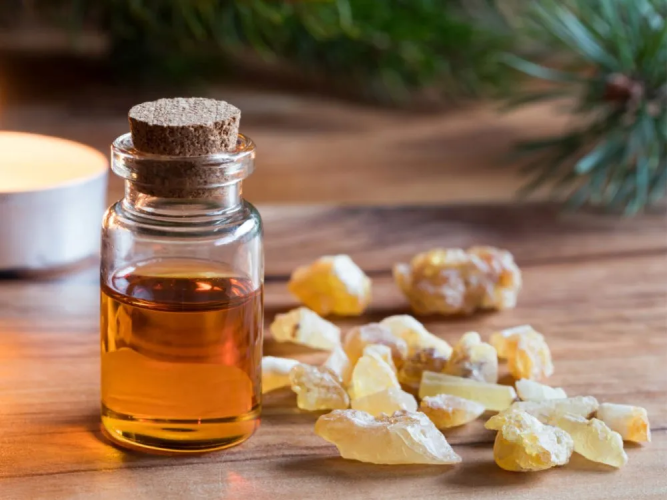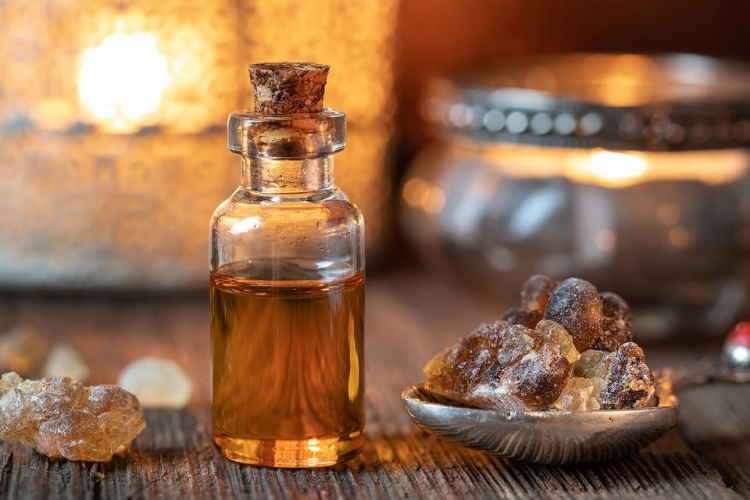The Wonders of Frankincense Oil: An Ancient Remedy for Modern Times
Frankincense oil, often referred to as the "king of essential oils," has a rich history that dates back thousands of years. Used in religious rituals, traditional medicine, and cosmetic practices, this precious oil has stood the test of time. Extracted from the resin of the Boswellia tree, frankincense oil offers a plethora of benefits that cater to various aspects of health and well-being. In this article, we will explore the origins, benefits, and modern uses of frankincense oil, highlighting why it continues to be a cherished natural remedy.
Origins and Historical Significance
Frankincense oil is derived from the resin of the Boswellia tree, which predominantly grows in the Arabian Peninsula, India, and parts of Africa. The resin is harvested by making incisions in the tree bark, allowing the sap to ooze out and harden into droplets. These droplets are then collected and steam-distilled to produce the essential oil.
Historically, frankincense was highly valued and traded extensively along the ancient trade routes of the Middle East and North Africa. It was used in religious ceremonies, including those of ancient Egypt, where it was believed to have spiritual properties that could connect humans with the divine. The oil was also a staple in traditional Ayurvedic and Chinese medicine, praised for its anti-inflammatory, antiseptic, and rejuvenating qualities.

Health Benefits of Frankincense Oil
-
Anti-Inflammatory and Pain Relief: Frankincense oil is renowned for its powerful anti-inflammatory properties. It can help reduce inflammation and pain associated with conditions like arthritis, asthma, and inflammatory bowel diseases. Topical application of the oil, when diluted with a carrier oil, can provide relief from muscle aches and joint pains.
-
Immune System Support: The oil's immune-boosting capabilities make it a valuable addition to your wellness routine. It helps enhance the body's defense mechanisms, making it more resilient against infections and diseases. Inhalation or diffusion of frankincense oil can aid in respiratory health by clearing congestion and supporting lung function.
-
Skin Health and Rejuvenation: Frankincense oil is a beloved ingredient in skincare due to its ability to promote healthy, youthful skin. It helps reduce the appearance of scars, stretch marks, and age spots. The oil also has astringent properties that can help tighten skin and reduce the appearance of pores, making it a popular choice for anti-aging treatments.
-
Stress and Anxiety Relief: The calming and grounding aroma of frankincense oil is effective in reducing stress, anxiety, and feelings of depression. Aromatherapy with frankincense oil can promote relaxation and mental clarity, helping to alleviate symptoms of anxiety and improving overall emotional well-being.
-
Digestive Health: Frankincense oil aids in digestion by stimulating the production of digestive enzymes and promoting healthy bowel movements. It can help alleviate symptoms of indigestion, bloating, and constipation. Massaging diluted frankincense oil onto the abdomen can provide relief from digestive discomfort.

Modern Uses of Frankincense Oil
In contemporary times, frankincense oil is used in a variety of ways to harness its therapeutic benefits:
- Aromatherapy: Adding a few drops of frankincense oil to a diffuser or inhaling it directly can help improve mood, reduce stress, and promote relaxation.
- Topical Application: Diluting frankincense oil with a carrier oil (such as jojoba or coconut oil) allows for safe application on the skin to treat conditions like acne, scars, and dry skin.
- Massage: Incorporating frankincense oil into massage therapy can enhance the benefits of the massage, providing pain relief and reducing inflammation.
- Oral Health: Frankincense oil can be used in homemade mouthwashes or added to toothpaste to promote oral health and prevent gum disease.
- Household Cleaner: Due to its antiseptic properties, frankincense oil can be used as a natural household cleaner, providing a fragrant and chemical-free alternative to conventional cleaning products.
The Historical and Cultural Significance of Frankincense Oil
Frankincense oil is derived from the resin of the Boswellia trees, primarily found in the Arabian Peninsula, northeastern Africa, and India. The process of extracting frankincense involves making incisions in the tree bark to release the sap, which then hardens into resin. This resin is collected and steam-distilled to produce the essential oil.
Historically, frankincense was a highly valued commodity, often more precious than gold. It played a crucial role in ancient religious rituals, especially in Egypt, where it was used in offerings, perfumes, and embalming practices. In ancient Greek and Roman cultures, frankincense was believed to possess divine properties and was burned during religious ceremonies to purify the air and create a sacred atmosphere.
Key Health Benefits of Frankincense Oil
-
Anti-Inflammatory and Pain Relief: Frankincense oil is renowned for its anti-inflammatory properties. It can help reduce inflammation and provide relief from conditions such as arthritis, asthma, and inflammatory bowel disease. Applying diluted frankincense oil to affected areas can alleviate muscle aches and joint pain.
-
Immune System Enhancement: This oil is known to bolster the immune system, making it more effective in warding off infections. Diffusing frankincense oil or inhaling its aroma can help clear respiratory pathways, support lung function, and improve overall respiratory health.
-
Skin Care and Healing: Frankincense oil is a popular ingredient in skincare due to its ability to promote healthy skin. It helps diminish the appearance of scars, stretch marks, and age spots. Its astringent properties aid in tightening the skin and reducing the appearance of pores, contributing to a youthful complexion.
-
Stress and Anxiety Reduction: The soothing aroma of frankincense oil is effective in reducing stress, anxiety, and depression. Using it in aromatherapy can enhance relaxation, mental clarity, and emotional well-being. It is particularly useful in meditation and mindfulness practices.
-
Digestive Health: Frankincense oil supports digestive health by stimulating the production of digestive enzymes and promoting smooth bowel movements. It can help alleviate symptoms of indigestion, bloating, and constipation when massaged onto the abdomen in a diluted form.
Contemporary Applications of Frankincense Oil
In modern wellness practices, frankincense oil is used in various ways to harness its therapeutic benefits:
- Aromatherapy: Adding a few drops of frankincense oil to a diffuser can create a calming environment, reduce stress, and promote a sense of peace.
- Topical Use: Diluting frankincense oil with a carrier oil, such as coconut or jojoba oil, allows for safe application on the skin to treat acne, scars, and dry skin.
- Massage Therapy: Incorporating frankincense oil into massage routines can enhance the effects of the massage, providing deeper relaxation and pain relief.
- Oral Care: Frankincense oil can be added to homemade mouthwash or toothpaste to improve oral hygiene and prevent gum disease.
- Natural Cleaning: Its antiseptic properties make frankincense oil an excellent ingredient in natural cleaning products, offering a fragrant and chemical-free alternative.
Comments
Post a Comment